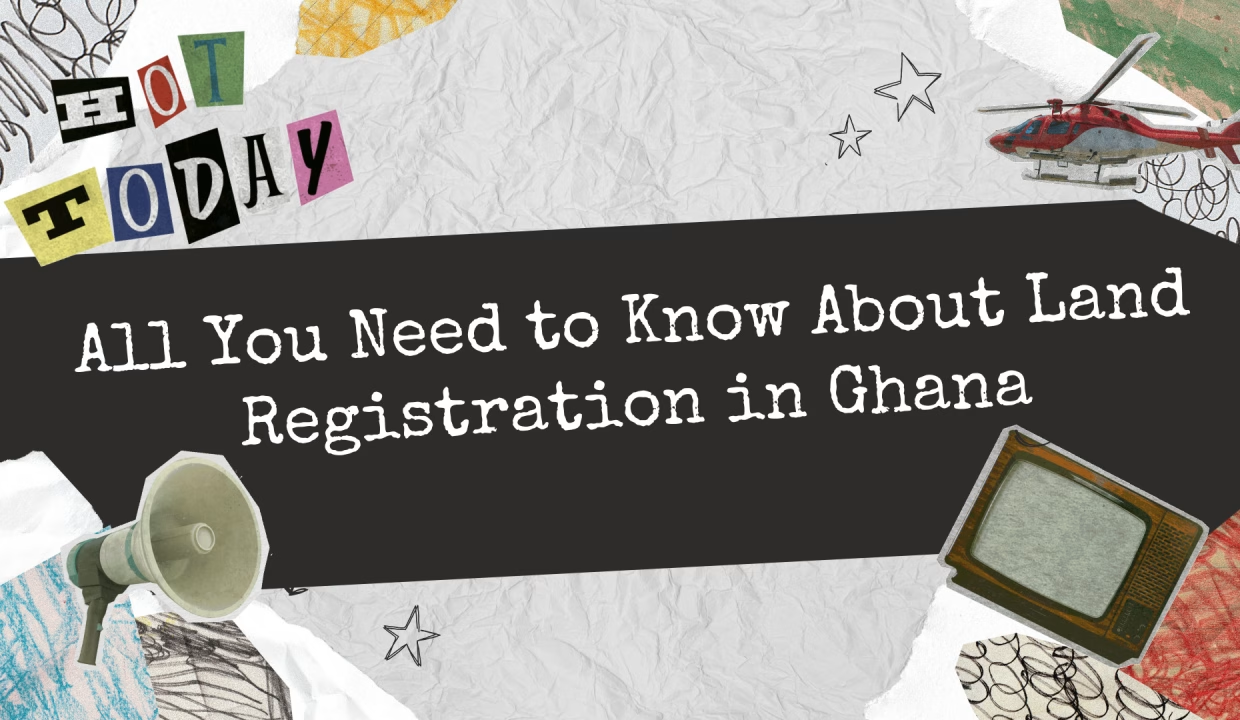
Navigating the world of land registration in Ghana can be complex. Understanding the process is crucial for anyone looking to secure property rights.
Land registration is not just a legal formality. It is a vital step in protecting your investment and ensuring peace of mind.
The process involves obtaining a land title, which serves as proof of ownership. This is essential for avoiding disputes and fraudulent sales.
The Land Commission of Ghana oversees this process, ensuring transparency and accountability. They provide guidelines and resources to assist with registration.
Whether you’re a first-time buyer or a seasoned investor, understanding land registration is key to success in Ghana’s real estate market.
Understanding Land Registration in Ghana
All You Need to Know About Land Registration in Ghana
Land registration in Ghana is crucial for legal property ownership. It establishes your rights, offering security and confidence in transactions.
The process confirms and records your ownership in the official land records. It ensures that all land dealings are transparent and safeguarded against disputes.
Key elements of land registration include:
- Verification of land ownership
- Completion of legal paperwork
- Engagement with relevant authorities
Understanding these fundamentals is vital for a successful registration experience. Engaging a licensed surveyor can be beneficial during the process. Legal assistance may also be necessary to navigate complex legal requirements.
Overall, land registration is a critical component of Ghana’s real estate industry and contributes to orderly land management.

Types of Land Ownership in Ghana
Ghana offers several land ownership categories, each with unique requirements. Understanding these types is crucial for successful land acquisition.
The principal categories of land ownership in Ghana are:
- Customary Lands
- Public Lands
- Private Lands
Customary lands are managed by traditional authorities or communities. These lands often involve specific cultural practices and protocols for registration.
Public lands belong to the state, and they have different regulatory frameworks. Acquiring such lands may involve rigorous legal processes.
Private lands are individually and family held and often come with simpler registration procedures. Knowing which category your land falls under is an essential step in the registration process, paving the way for informed decisions.
Why Land Registration Is Important
Registering land in Ghana is more than a legal formality. It plays a crucial role in safeguarding property rights and confirming ownership. Without registration, owners may face disputes or fraudulent claims on their land.
The benefits of land registration include:
- Legal protection of property rights
- Prevention of land disputes
- Increased value for registered lands
- Requirement for Mortgage qualification
A registered title simplifies buying, selling, and transferring property. It provides assurance and confidence to investors and banks. Registering land not only protects your interests but also contributes to the growth and modernization of the Ghana real estate market.
Step-by-Step Process for Registration of Land in Ghana
The registration of land in Ghana involves several critical steps. Each step ensures the protection and legal recognition of your property.
First, conduct a thorough title search. This search confirms that the land is free from disputes or liens. This essential step helps secure your ownership status.
Next, engage a licensed surveyor to map the property. Accurate demarcation is crucial to avoid future boundary disputes. The surveyor will provide a detailed site plan.
Once you have the site plan, submit it to the Lands Commission. The commission handles the property registration process. You will need to fill out the necessary forms and pay the required fees.
After submission, your application undergoes vetting. The Lands Commission verifies all submitted documents. This process may take several weeks but ensures all is in order.
Following verification, you might need to participate in public notices. This stage allows any objections to be raised. It is a transparent approach to prevent any hidden disputes.
After clearing the public notice stage, you will receive a land title certificate. This certificate confirms your legal ownership. It is the ultimate proof of your secured property rights.
Finally, keep your title certificate safe. It is invaluable for future transactions or disputes. With these steps, the registration of land in Ghana becomes a structured and clear process.

Key Documents Required
Successfully registering land requires submitting several key documents. These documents help validate the ownership and details of your property.
Make sure to prepare:
- Land title search report
- Site plan certified by a licensed surveyor
- Identure or sale agreement
- Proof of identity (e.g., national ID)
- Application forms from the Lands Commission
Each document plays a vital role in confirming property legality. Ensure they are complete and accurate to avoid delays or issues.
Common Challenges One Might Face
Land registration in Ghana poses some common challenges. Understanding these helps overcome them effectively.
One major challenge is the bureaucratic process. It can be lengthy and complex. To counter this, engage a professional or legal expert for guidance.
Another issue is incomplete documentation. Missing paperwork often stalls the process. Always double-check your documents for completeness and compliance.
These challenges can appear daunting. However, with preparation and professional help, you can navigate the process smoothly.
Common challenges:
- Bureaucratic delays
- Missing or incorrect documentation
Tips for a Smooth Land Registration Experience
To navigate land registration in Ghana smoothly, preparation is key. Being informed reduces hassle and ensures a faster process.
Consider these tips:
- Engage professionals for guidance
- Complete all documents accurately
- Confirm land details and boundaries early
- Stay updated on the process through regular checks
By following these tips, you enhance efficiency and reduce potential pitfalls during registration. Being proactive is your best strategy for securing land.
Frequently Asked Questions About Land Registration in Ghana
Understanding land registration can be complex. Many people have questions about this vital process. Here are some common queries and answers.
- How long does registration take?
Answer: It usually takes several months.
- Is registration mandatory?
Answer: Yes, it is necessary for legal ownership.
- Can registration prevent disputes?
Answer: Absolutely, it helps avoid conflicts over land ownership.
These answers address some basic concerns. For more details, consulting a professional is advisable.
Conclusion: Securing Your Investment in Ghana Real Estate
Registering land in Ghana is essential for any real estate venture. It ensures your ownership is secure and legally recognized.
Through this process, you protect your investment from disputes and fraud. It also prepares your property for future transactions.
Making informed decisions with the right guidance leads to successful land ownership. This step is vital for anyone investing in Ghana’s thriving real estate market.
